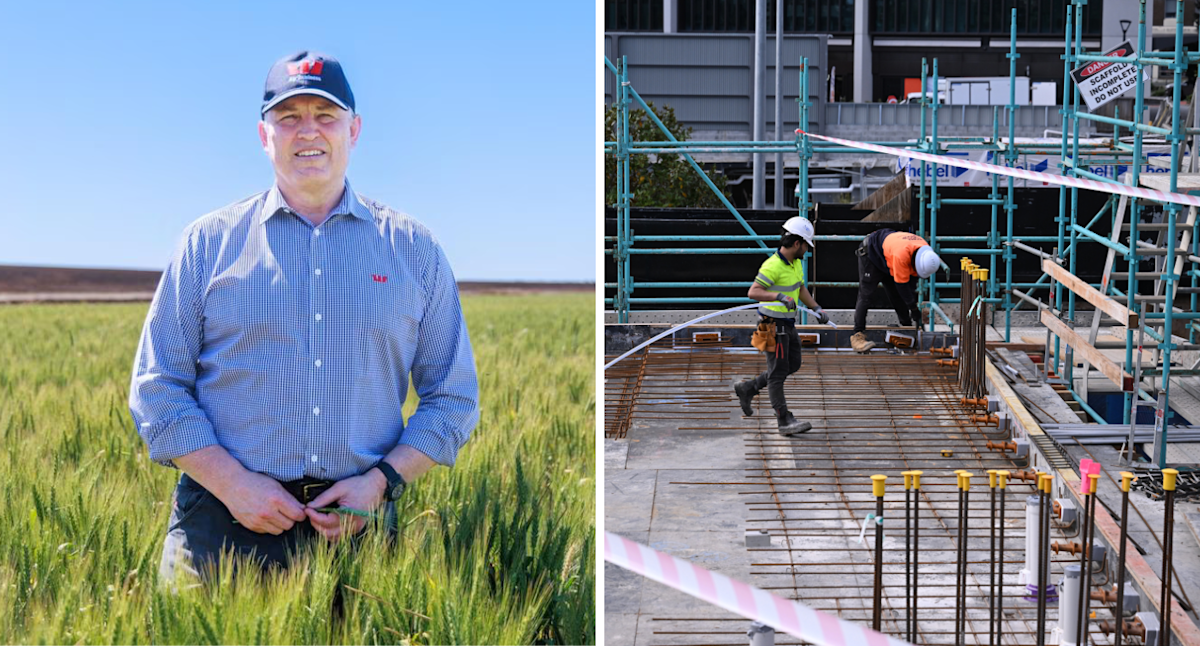Westpac CEO Anthony Miller has called for skilled migrants to be prioritised to address Australia’s housing shortage. (Source: Kim Miller/AAP)
Westpac boss Anthony Miller has called for skilled migrants to be prioritised to tackle Australia’s housing shortage. The Australian government has a target of building 1.2 million new homes by 2029, but there are fears this won’t be achieved given major labour shortages.
Miller said there was a possible solution “staring us in the eye”, which was to get “more properties built in regional Australia” and get skilled migrants in. The major bank CEO told The Herald Sun the regions made sense for property development programs, given capital city prices were now out of reach for many homebuyers.
“That’s great nation building … Get the right immigrants in, get the right resources allocated, create enormous amounts of jobs and create this self-fulfilling outcome over the next five or 10 years,” he said.
RELATED
Miller argued efforts to fix the housing crisis were being stopped by approval processes that allowed groups, such as local councils, to delay projects.
Australia needs to clear regulation and harness “moonshot” ambition in attracting capital and talent from overseas.
“Housing affordability in Australia is about building more houses at the right price,” he said. “It’s not about stopping intelligent men and women from around the world coming to Australia.”
It comes after Westpac on Monday reported a $6.9 billion net profit after tax for the year, a 1 per cent drop. The bank also announced it has sold its RAMS home loan business, which holds $21.4 billion in mortgages.
Builders have also been calling for more skilled migrant tradies and for the government to streamline the current process of recognising overseas qualifications.
Scott Challen, CEO of building and home-improvement company QHI Group, previously told Yahoo Finance that employing migrants was one key to helping the construction industry get back on its feet, which he described as “hanging on by its fingernails”.
“If we can’t employ Australians, you need to let us employ migrants. You’ve got to let me put on apprentices that come from other countries,” he said.
Challen said one of the biggest challenges with accepting migrant tradies was that their overseas qualifications were sometimes not recognised in Australia and they may be forced to re-train before they are allowed on site.
Story Continues
Veteran builder Scott Challen says the construction industry is facing a raft of problems and the future is ‘very bleak’. (Source: Supplied/Getty)
Master Builders Australia has estimated that a quarter of the country’s construction workforce are migrants. But numbers are dwindling, with only 5 per cent of new entrants in the past five years being from overseas.
Part of the reason for this is the difficulty getting overseas qualifications recognised and the time this takes, with the process taking anywhere from 12 to 18 months.
Master Builders Australia CEO Denita Wawn said each skilled migrant who was blocked by “unnecessarily complex recognition processes” should be seen as a loss to the construction industry of 2.4 new houses each year.
“Harnessing the skills of overseas-trained workers is critical to addressing Australia’s housing crisis. Yet, to work in many roles in construction they have to endure lengthy, expensive and complex skills assessment processes,” she said.
“For many, this results in them working below their skill level, or not in the industry at all. This is a loss to building and construction, and Australia as whole.”
Master Builders is a supporter of the Activate Australia’s Skills campaign, which is calling for key skills recognition reforms, including establishing one national governance system for all overseas skills and qualifications recognition.
According to the Department of Home Affairs, some 15,524 skilled visas were granted to workers in the construction sector in the 2024-25 year. This was the highest in the last 10 years.
Recent figures from the Australian Bureau of Statistics found Australia had fallen more than 60,000 homes short of its target during the Housing Accord’s first year.
It comes as Australian housing values rise at their fastest pace in more than two years.
Cotality’s Home Value Index found values rose by 1.1 per cent in October. Momentum has been building since the first interest rate cut in February, with the annual pace of growth at 6.1 per cent nationally.
“Before the February rate cut, housing conditions were losing momentum, even recording flat to falling values through late 2024 and January 2025,” Cotality’s research director Tim Lawless said.
“The first rate cut in February marked a clear turning point, with home values moving through a positive inflection across most regions and gathering steam since then.”
National home values are now at $872,538 across the country. The combined capitals have hit $959,526, while median values for regional areas are $710,573.
Sydney home values are now $1,256,156, Melbourne $818,975, and Brisbane $992,864.
Get the latest Yahoo Finance news – follow us on Facebook, LinkedIn and Instagram.
